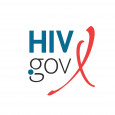Content from HIV/AIDS Bureau, Health Resources and Services Administration, U.S. Dept. of Health and Human Services
Thousands of HIV care, treatment, and prevention leaders, including Health Resources and Services Administration’s (HRSA) Ryan White HIV/AIDS Program (RWHAP) recipients and subrecipients from across the country, convened in Washington, DC, and virtually for Day 2 of the 2024 National Ryan White Conference on HIV Care & Treatment (2024 NRWC) on Wednesday [August 21]. The Day 2 theme was “Empowering Communities,” which highlighted how empowering communities in the Ryan White HIV/AIDS Program has an important role in increasing social connectedness and supporting the health and wellbeing of people with lived experiences.
Special Session: Ryan White’s Story as Told by His Mother: Jeanne White-Ginder
Day 2 of the 2024 NRWC kicked off with a special session titled “Ryan White’s Story as Told by His Mother: Jeanne White-Ginder,” who rejoined the conference to share her experiences and those of her son, Ryan White, as he struggled to overcome HIV/AIDS discrimination following his diagnosis in the 1980’s. Mrs. White-Ginder began with a special thank you to the Ryan White HIV/AIDS Program community that continues to carry out the legacy of her son through their dedication to providing HIV care and treatment. She also reflected on Ryan White’s life and shared that “there are so many people that need to be thanked, and some of them are not here.” Throughout the session, she shared personal moments between her and her son that continue to motivate her as an activist and advocate for others impacted by HIV.
Day 2 Plenary Session Spotlight: Empowering Communities
The Day 2 plenary session focused on empowering communities, including social connectedness, quality of life, and the health and wellbeing of people with lived experiences. Michael Kharfen, HRSA HAB’s Division of Policy and Data Director, moderated the session and emphasized the RWHAP’s commitment to integrated, coordinated community engagement efforts to reduce stigma and address health inequities and social disparities. The session highlighted how these efforts are advancing the goals of the National HIV/AIDS Strategy.
The plenary began with a presentation from Dr. Julianne Holt-Lunstad, Professor of Psychology and Neuroscience and the Director of the Social Connection & Health Lab at Brigham Young University. Dr. Holt-Lunstad’s presentation explored “From Loneliness to Connection” and the positive impacts of social engagement on quality of life. She explained how being socially connected is critical for improved health outcomes and highlighted strategies that individuals, providers, and communities at large can leverage to increase connectivity.
Next, the plenary session featured a panel of presenters who each shared their unique lived experience. First, Kahlib Barton, the Chief Program Officer of True Colors United, shared their perspective on the importance of community engagement and strategies for engaging people with lived experience who are unstably housed or experiencing homelessness. Kahlib shared how to overcome stigma related to accessing care, and how it is important to educate the public health community on how to communicate.
Next, Kayla Quimbley, a Youth Advocate, shared her perspective on the impact of HIV stigma and the importance of community engagement and strategies for people with lived experience, including young people. As a young person with HIV, Kayla said that she “wanted to break shackles of stigma and shame and empower others to do the same.” She also shared how the arts and poetry provided an outlet and a way to heal, and in policy discussions, she continues to be the voice for people who are not at the table.
Then, Keiva Lei Cadena, Co-executive director of Positive Women’s Network – USA, shared an overview on the importance of community engagement within the transgender community and harm reduction strategies for engaging people with lived experience. Having experienced homelessness and dropping out of school at 14 years old, Keiva shared how she knows all too well what life is like in the “school of hard knocks.” She discussed the importance of community engagement and feeling seen and understood. As a survivor of domestic abuse and someone in recovery from addiction, Keiva also shared how she is transforming the conversations in communities that keep people with HIV from seeking care.
Finally, Omar Jose Perez, Health and Public Policy Consultant and Centro Ararat Delegate from Puerto Rico, provided his perspective on the importance of community engagement with the Hispanic/Latino community and addressing stigma to engage people with lived experience who are aging. He shared his story as person with HIV who tested positive more than 30 years ago, at age 25, and how he has overcome the unique challenges of aging with HIV. Omar discussed how it has taken courage, introspection and years of service in the field, and today he openly shares his HIV status to help others.
Stay Connected to #NRWC2024
Want to stay connected to the 2024 National Ryan White Conference on HIV Care & Treatment? Follow HRSA on X (formerly Twitter): @HRSAgov. You can share which sessions you are enjoying throughout the week using #NRWC2024 and #34YearsofCARE.
Share Why You CARE
On Sunday, August 18, HRSA’s HIV/AIDS Bureau recognized the 34th anniversary of the Ryan White Comprehensive AIDS Resources Emergency (CARE) Act – the legislation that created the RWHAP. Help us celebrate by downloading the “I CARE Because…” flyer, print it out, fill it in, and post a picture of yourself with the flyer to our 2024 NRWC Photo Gallery. When posting, please use #34YearsofCARE and #NRWC2024. We will use the images throughout the remainder of the year to highlight how the RWHAP has made an impact in the lives of our community members.
Learn More
Learn more about the Ryan White HIV/AIDS Program and the 2024 NRWC:
- Ryan White HIV/AIDS Program website: https://ryanwhite.hrsa.gov
- 2024 National Ryan White Conference: https://ryanwhiteconference.hrsa.gov
This blog post was published August 23, 2024, on HIV.gov.








Comments
Comments